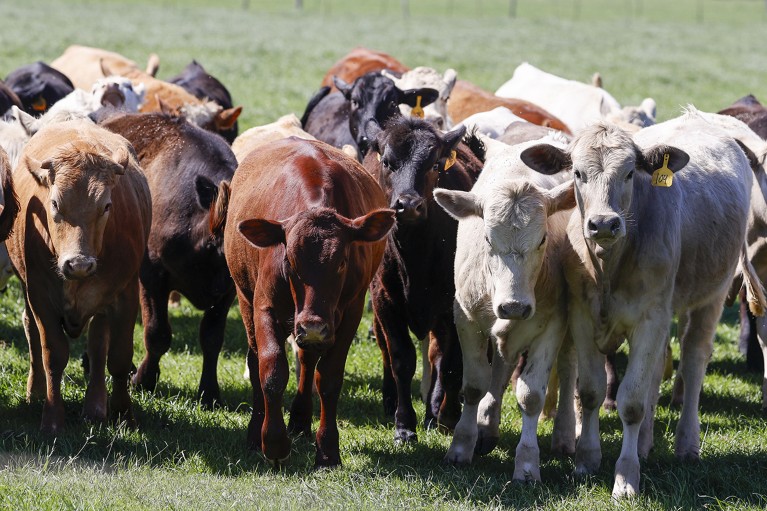A virus that has killed hundreds of millions of birds has now infected cattle in six US states, but the threat to humans is currently low.

Researchers are closely monitoring the spread of a worrisome strain of avian influenza to cattle — and one person — at farms in six US states.
These infections represent the first widespread outbreak of bird flu in cows. The outbreak is concerning because humans frequently come into contact with cattle on farms, giving the virus ample opportunity to spread to people, says Daniel Goldhill, an evolutionary virologist at the Royal Veterinary College in Hatfield, UK.
Health officials have said that the overall threat to people remains low, for now, but they are watching the situation unfold closely. “There’s always a worry that viruses will surprise us,” Goldhill says. “We don’t know what they’ll do next.”
Scientists are scrambling to assess how well candidate vaccines and antiviral drugs will work against the circulating strain and to update diagnostic kits for identifying infections in people quickly. They are also trying to understand whether the cows were infected by birds or another source, and are on alert for any changes in the situation that could raise the risk for people.
“There are a lot of questions and, so far, not a lot of answers,” says Florian Krammer, a virologist at Icahn School of Medicine at Mount Sinai in New York City.

